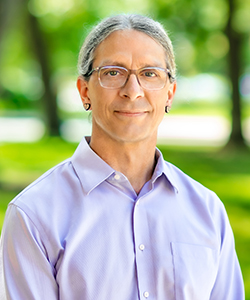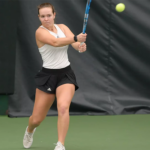Now three weeks into the job, Mark Freeland is settling into his role as the new director of the Electa Quinney Institute at UW-Milwaukee.
Freeland comes to UWM from South Dakota State University, where he was the co-coordinator of the American Indian and Indigenous Studies Program. That program provided the academic component for the Wokini Initiative, a program to redistribute land-grant funding to support Indigenous students.

Freeland replaces Margaret Noodin, who stepped down to concentrate on her roles as associate dean of humanities in the College of Letters & Science and professor of English.
“I am very thankful to be here at UWM to continue the work that Dr. Margaret Noodin has built here at EQI,” Freeland said. “EQI is in a very good place right now, and it is an honor to be associated with the institute.”
Founded in 2010, the Electa Quinney Institute for American Indian Education works to support American Indian students at UWM, and to strengthen and celebrate American Indian education at the local, regional and national levels.
“We are thrilled to have Mark Freeland at UWM,” said Scott Gronert, interim provost and vice chancellor of academic affairs. “He brings a wealth of experience to the role and a long history of involvement and scholarship in Indigenous communities. We look forward to him building on the good work that the Electa Quinney Institute has been doing for more than a decade.”
Freeland is a citizen of the Bahweting Anishinaabe community in northern Michigan, also known as the Sault Saint Marie Chippewa.
He earned a PhD in religious and theological studies from the joint doctoral program at the Iliff School of Theology and the University of Denver. While completing his studies there, Freeland worked as a council member of the Four Winds American Indian Council, an urban community center in downtown Denver.
Freeland is the author of “Aazheyaadizi: Worldview, Language and the Logics of Decolonization,” which provides a theoretical grounding for understanding the problematic role that religion plays within Indigenous communities and sheds light on the issues around translating Indigenous languages in and out of colonial languages.





